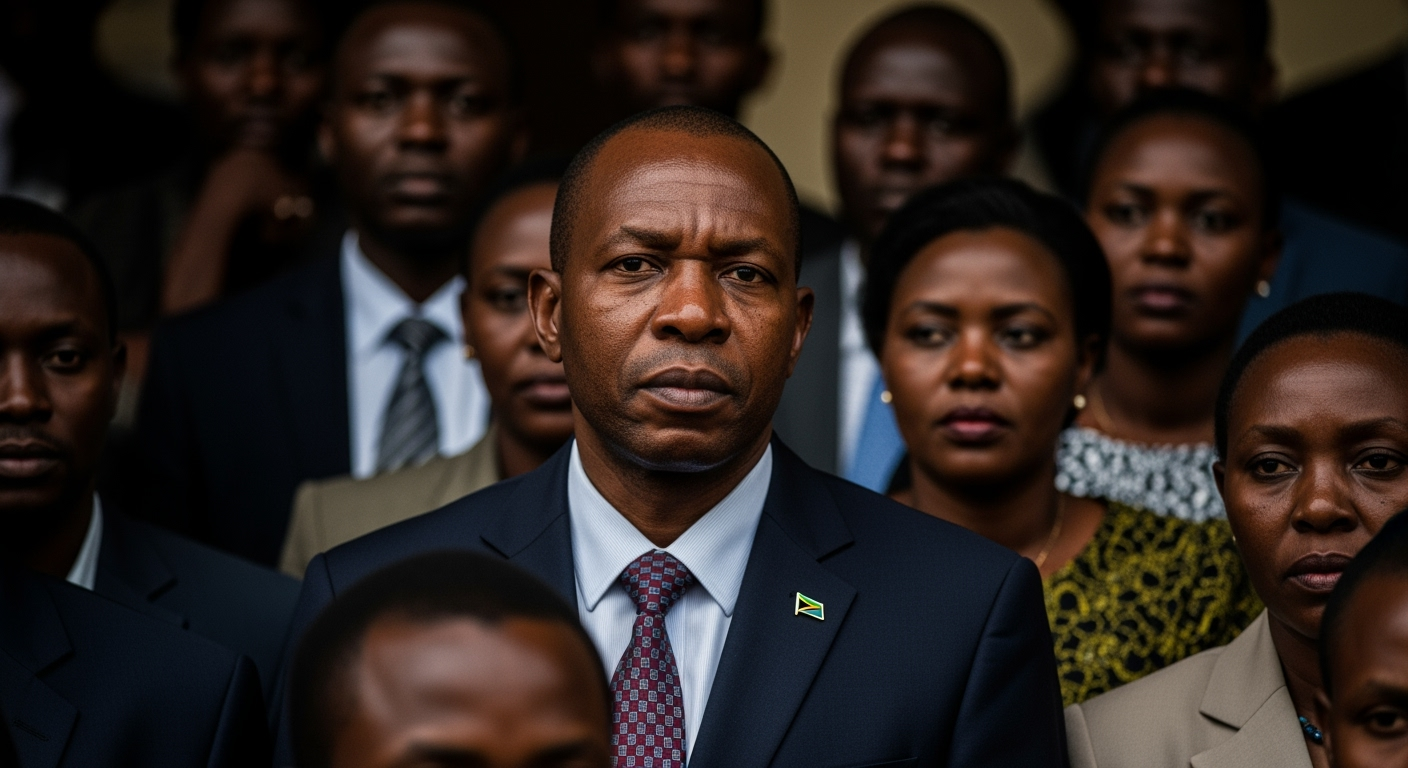Related Articles

Canada Narrows Submarine Bid to German and South Korean Firms in Multi-Billion Dollar Procurement Race




Tanzania's recent general elections, particularly the 2020 polls, have brought renewed scrutiny to the nation's democratic trajectory, marked by the continued dominance of the ruling Chama Cha Mapinduzi (CCM) party amidst persistent allegations of irregularities and a shrinking political space. As the East African nation gears up for its next general election in October 2025, a climate of apprehension, characterized by concerns over political freedoms, human rights, and the integrity of the electoral process, casts a long shadow over the aspirations for a robust multi-party democracy. The outcome of these electoral cycles is not merely about leadership changes but reflects deeper struggles concerning governance, accountability, and the fundamental rights of citizens in a country that has historically maintained relative stability in a volatile region.
The general elections held on October 28, 2020, saw incumbent President John Magufuli of the CCM party declared the winner with an overwhelming 84.40% of the presidential vote, securing his second term in office. His main challenger, Tundu Lissu of the opposition Chama cha Demokrasia na Maendeleo (Chadema), received 13.04%. Concurrently, the CCM achieved a commanding majority in the National Assembly, capturing 350 out of 377 seats, a significant increase from 253 seats in 2015. The semi-autonomous archipelago of Zanzibar also held its elections on the same day, with Hussein Mwinyi of the CCM winning the presidency there with 77.98% of the vote.
However, these results were met with widespread denouncement from opposition parties, who alleged significant and widespread irregularities, including ballot stuffing, prevention of opposition polling agents from accessing stations, and the arbitrary disqualification of candidates. International observers and civil society organizations echoed these concerns, noting a less open and tolerant political environment compared to previous elections. Notably, non-African electoral observation was not permitted, and local civil society observation was restricted, raising serious questions about the transparency and credibility of the process. The opposition called for new elections and mass protests following the results, leading to arrests of key opposition figures.
The period leading up to the 2020 elections was characterized by an intensifying crackdown on political opposition, media, and civil society. Under President Magufuli's first term, government actions steadily narrowed the space for dissent, with bans on opposition political rallies and an increase in harassment and arrests of opposition leaders and supporters. International campaign groups expressed alarm over restrictions on media freedoms, including reports of internet service blocking and throttling, alongside disruptions to social media platforms.
Human rights organizations documented numerous instances of arbitrary arrests, detentions, and politically motivated charges against opposition members. In a particularly concerning development, violence was reported in Zanzibar on the eve of the polls, with security forces allegedly firing live ammunition into crowds, resulting in fatalities and injuries. These incidents underscored a pattern of repression designed to suppress civic engagement and entrench the ruling party's power, painting a grim picture of the country's commitment to democratic norms.
Following President Magufuli's death in March 2021, Vice President Samia Suluhu Hassan assumed the presidency, becoming Tanzania's first female head of state. Her initial months in office brought a wave of cautious optimism, as she signaled a departure from her predecessor's more repressive style. These early policy shifts included lifting bans on certain media outlets and allowing opposition political parties to resume public rallies, which had been arbitrarily restricted. President Hassan also publicly committed to constitutional reforms and fostering a more inclusive political environment.
Despite these initial gestures, recent reports from organizations like Amnesty International and Human Rights Watch indicate a renewed intensification of repression as the country approaches the October 2025 general elections. Concerns persist over politically motivated charges, arbitrary arrests, and restrictions on assembly, movement, association, expression, and press freedoms targeting opposition leaders, journalists, and civil society. In early 2024, the Tanzanian parliament passed new electoral laws, including the Presidential, Parliamentary and Councillors' Elections Act, 2024, and the Independent National Electoral Commission Act. While supporters claimed these reforms aimed to improve transparency, critics argue that they do not sufficiently guarantee the independence of the electoral commission and may perpetuate government influence, failing to create a truly level playing field.
The challenges facing Tanzania's electoral process extend beyond legal frameworks to encompass the practical implementation of democratic principles. Reports from UN human rights experts in October 2024 highlighted an "escalating pattern of human rights violations" in the lead-up to the 2025 presidential election, including harassment, intimidation, arbitrary arrests, and unlawful killings of protesters and opposition members. The lack of accountability for election-related violence, particularly in Zanzibar, continues to be a significant concern, with calls for investigations into abuses by security forces largely unheeded.
The structure of electoral bodies, such as the National Electoral Commission (NEC) and the Zanzibar Electoral Commission (ZEC), also raises doubts about their impartiality, given that their members are largely appointed by the president. This perceived lack of independence, coupled with accusations of partisan influence and the disqualification of opposition candidates, threatens the authenticity of the electoral system. The overall environment, marked by efforts to suppress political dissent and intimidate opposition, suggests that the 2025 elections risk becoming a procedural exercise lacking full legitimacy if significant reforms are not genuinely implemented.
Tanzania stands at a critical juncture in its democratic journey. The continued dominance of the CCM, which has been in power since independence in 1961, underscores a long-standing political reality. While the country has technically held multi-party elections since 1992, the mechanisms for genuine political competition remain under considerable strain. The forthcoming elections will be a crucial test of the government's commitment to upholding human rights, fostering an inclusive political environment, and ensuring that its citizens can exercise their right to vote in an atmosphere free from fear and repression. Without tangible steps towards strengthening independent institutions, protecting fundamental freedoms, and ensuring accountability for past abuses, the credibility of Tanzania's democratic process will continue to face international scrutiny and internal skepticism.